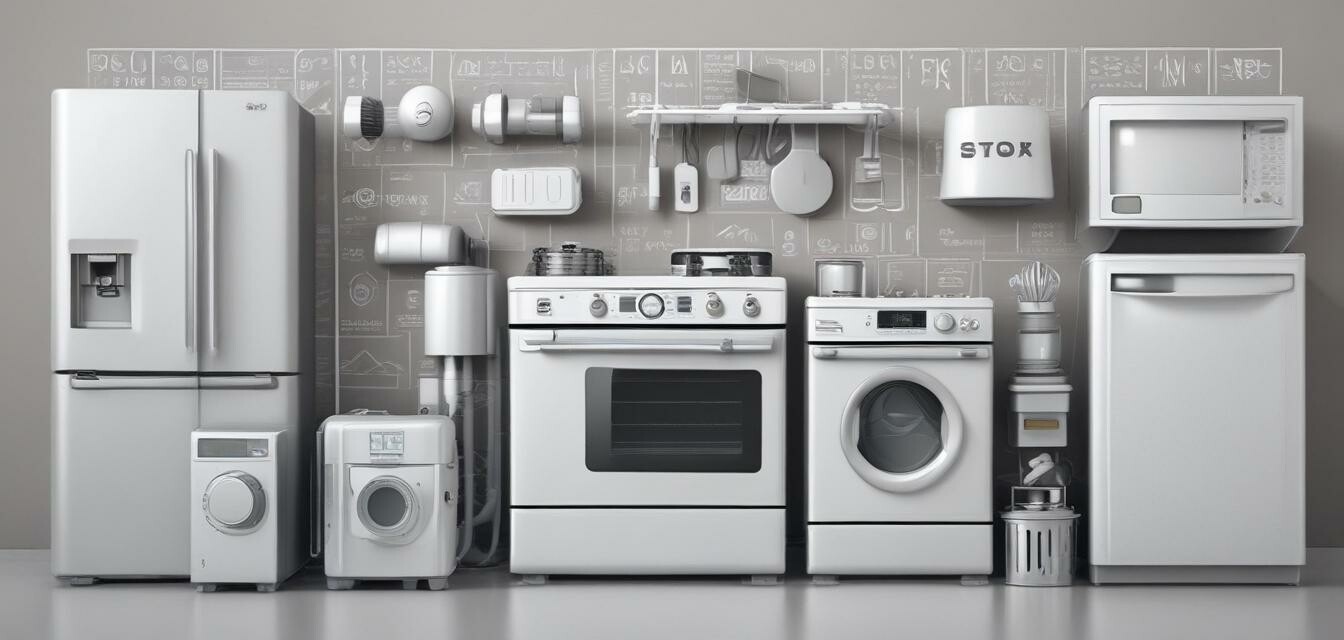
What the Latest Energy Standards Mean for Consumers
Key Takeaways
- New energy standards aim to reduce energy consumption in home appliances.
- These standards will affect purchasing decisions by making energy-efficient appliances more prominent.
- Consumers may save money on utility bills over time with energy-efficient products.
- Understanding the energy label can help in making informed choices.
- Stay updated on trends in energy-efficient appliances to maximize savings.
With the increasing focus on sustainability and energy savings, new energy standards have been introduced for home appliances. These standards are designed to combat rising energy costs and environmental impacts. Understanding these changes is vital for consumers aiming to make informed purchasing decisions.
Overview of the New Energy Standards
The government and various regulatory bodies regularly revise energy standards to encourage the adoption of energy-efficient appliances. The latest standards focus on several key areas:
- Reduction in energy consumption.
- Improvement in overall appliance efficiency.
- Enhancement of consumer awareness through labeling.
What Are Energy Labels?
Energy labels provide crucial information about the energy consumption of appliances. These labels often include the following details:
| Label Type | Description |
|---|---|
| Energy Star | Indicates that the appliance meets energy efficiency guidelines set by the U.S. Environmental Protection Agency. |
| Federal Energy Regulatory Commission (FERC) Labels | Status given to appliances that comply with strict federal energy savings standards. |
| Annual Energy Consumption (AEC) | Shows the estimated energy usage of an appliance for a year. |
Impact on Consumer Purchasing Decisions
The new energy standards will greatly influence purchasing decisions in the home appliance market. Here are some ways consumers will feel the effects:
- Informed Choices: The availability of energy labels will allow consumers to compare energy efficiency more easily.
- Long-Term Savings: Although energy-efficient products may have a higher upfront cost, they can lead to significant savings in energy bills over time.
- Market Demand: As consumers become more aware of energy efficiency, the demand for such products will increase, likely leading to more innovations and options available.
- Eco-friendly Options: Consumers looking to reduce their carbon footprint will find a wider range of environmentally responsible products to choose from.
Benefits of Energy-Efficient Appliances
Investing in energy-efficient appliances has numerous advantages:
| Benefit | Description |
|---|---|
| Lower Utility Bills | Energy-efficient appliances consume less energy, leading to reduced electricity costs. |
| Environmental Impact | Using less energy reduces greenhouse gas emissions, contributing to a healthier planet. |
| Improved Performance | Many energy-efficient products offer improved technology and better performance. |
| Government Incentives | Homeowners may be eligible for tax credits or rebates when purchasing qualified appliances. |
Staying Updated on Trends
As the energy-efficient appliance market grows, staying informed is crucial. Here are a few tips:
Tips for Consumers
- Regularly check for updates on energy standards from reliable sources.
- Sign up for newsletters from energy efficiency organizations.
- Visit Twoe Appliances' News and Trends category for the latest information.
- Consider joining local community discussions about energy efficiency.
- Share information about energy-saving appliances with friends and family.
Understanding the Future of Energy Standards
The shift towards stricter energy standards signifies a growing awareness among both consumers and manufacturers regarding the importance of sustainability. As standards evolve, consumers can expect even more improvements in efficiency and performance from appliances.
Conclusion
Awareness of energy standards is essential for making smart appliance purchases. By choosing energy-efficient appliances, consumers can not only save money but also contribute positively to the environment. Always look for energy labels and stay updated on market trends to make the best buying decisions.
Pros
- Energy-efficient appliances save on monthly electricity bills.
- Lower environmental impact through reduced energy use.
- Potential government rebates available for eligible products.
- Increased product efficiency and performance.
Cons
- Higher initial cost compared to traditional appliances.
- Limited availability for some specific models or features.
- Confusion about labels and their meanings may still exist.
For more insights on buying energy-efficient appliances, check out our Buying Guides.
Explore our latest products in various categories such as Air Conditioners, Dishwashers, and Refrigerators to find the best options for your home.